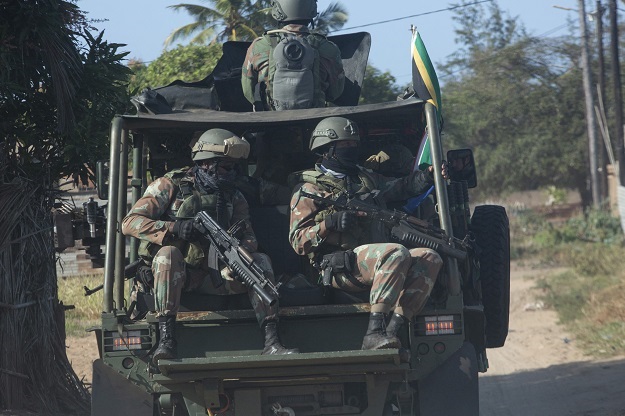
- Islamic extremists launched raids on police and army bases in Mozambique to seize arms and ammunition.
- Insurgent attacks are spreading to the south of Cabo Delgado - an area that houses most internally displaced people.
- In the south, at least 61 mining projects could be affected by fighting, making a dent in government revenue.
Islamic extremist attacks in Mozambique's oil-rich Cabo Delgado took an unexpected turn when insurgents launched surprise attacks on police and army bases in the beginning of July and, in the process, seized arms and ammunition.
According to the Armed Conflict Location and Event Data Project (ACLED), a disaggregated data collection-, analysis-, and crisis-mapping initiative, this change in tactic was in preparation for bigger attacks in Pundanhar village in the Palma district.
Until recently, Pundanhar was a no-go area for the insurgents, since the arrival of Rwandan and Southern African Development Community (SADC) troops as part of a joint operation last year.
The report stated:
It also stated that the number of officers who were attacked was unknown as "80-100 members of the UIR fled".
The attack was later claimed by Islamic State, which said it seized weapons and burnt a barrack in the process.
At the time of the attacks, the media in Mozambique reported that soldiers claimed they were overwhelmed by superior forces after intense clashes.
ACLED said the insurgents, on 11 July, launched a similar raid on a Mozambican Defence and Security Forces (FDS) position in Mandimba, Nangade, seizing a significant haul of weapons, ammunition and equipment.
The following day, they attacked another FDS base in Chitolo, less than 40km from Mocímboa da Praia town.
Speaking during a webinar titled Cabo Delgado's resource curse - beyond natural gas, hosted by the Institute for Security Studies, expert on Mozambique Borges Nhamirre said attacks have been spreading into the south of Cabo Delgado - an area that was free from conflict.
He added that the spread meant that SADC's Standby Force In Mozambique and the Rwandan Defence Forces had more ground to cover, resulting in stretched resources.
The new areas the conflict has spread to house internally displaced people (IDPs) in camps.
The International Organisation for Migration said there was a lack of adequate shelter, food, and hygiene kits. As such, when the conflict spreads to those areas, it could get worse.
Those fears were also raised by Nhamirre, who said: "We had about 7 500 IDPs now with recent attacks. Now there has originated about 50 000 new IDPs, meaning that it will add to an already bad humanitarian situation in Cabo Delgado."
At the seminar, Joao Feijo from Mozambican non-governmental organisation Observatório do Mundo Rural said there was a need to start talks with rebel forces to put an end to the war.
He said:
For Fatima Mimbire, a Mozambican writer, "companies interested in investing in Cabo Delgado must support efforts to assist internally displaced people and ensure the safe return of communities".
Mozambican public policy think tank The Centre for Public Integrity, argues that the spread of the conflict into the south of Cabo Delgado is likely to affect at least 61 projects in the mining sector, which are significant income generators for the government.
"The new incursions endanger around 61 projects operating in the south of the province, which could represent an unforeseen loss of state revenue," the organisation said in a statement.
The News24 Africa Desk is supported by the Hanns Seidel Foundation. The stories produced through the Africa Desk and the opinions and statements that may be contained herein do not reflect those of the Hanns Seidel Foundation.

